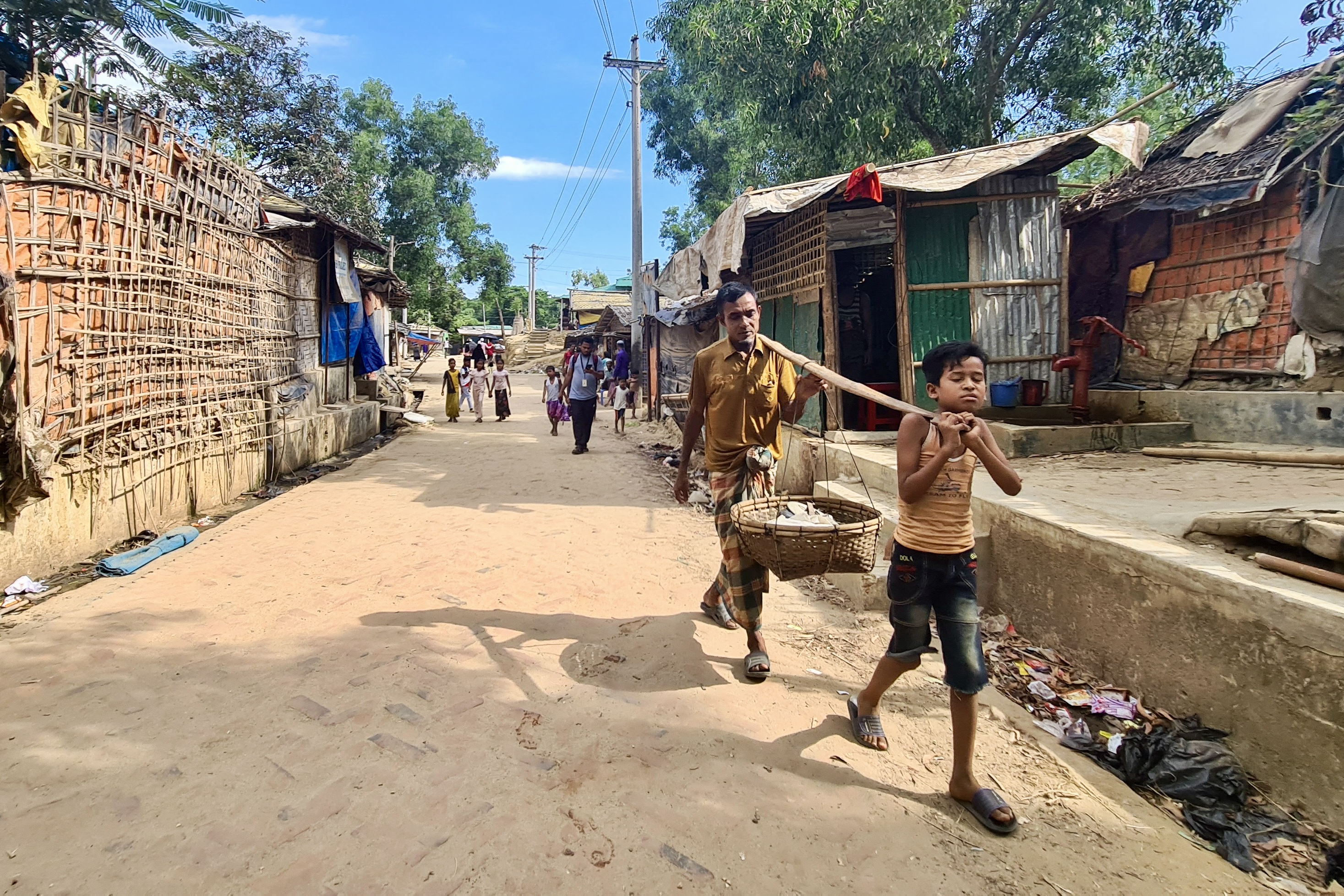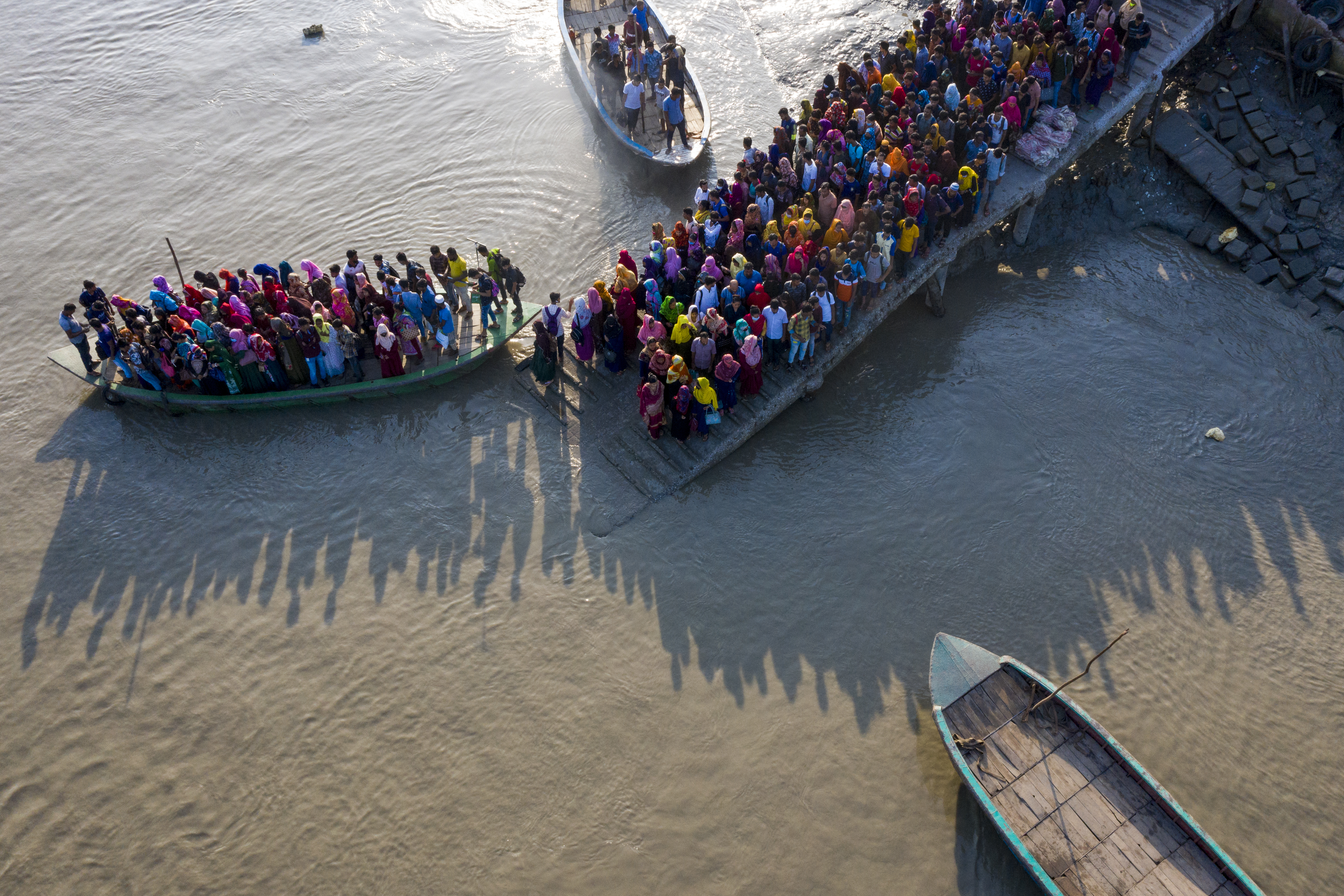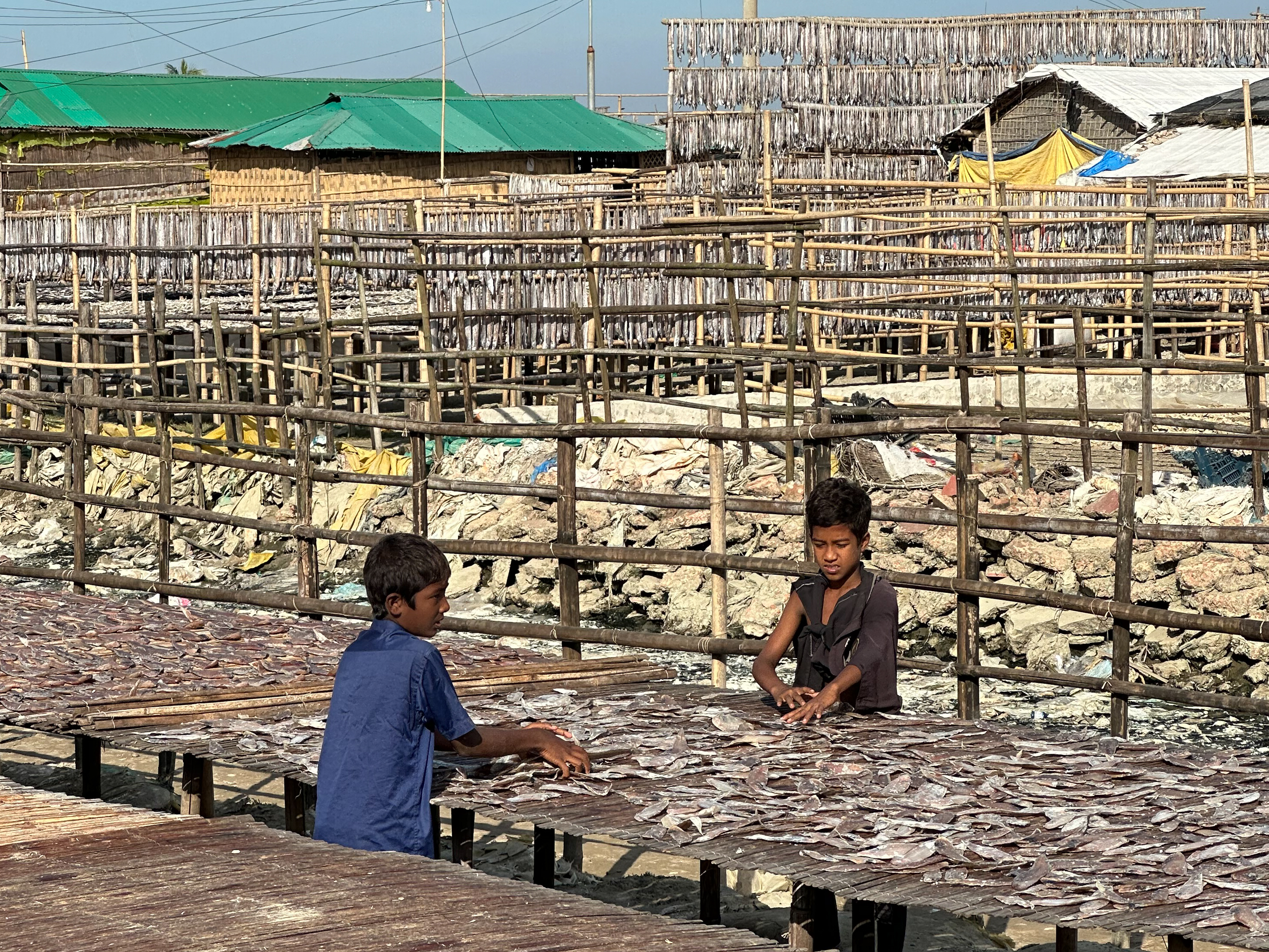
End of Swiss development aid in Bangladesh sparks concern

After more than 50 years of partnership, Switzerland is ending its bilateral development activities in Bangladesh. The decision has been met with dismay by NGOs and experts alike – especially as the country is already taking a hit from the suspension of funding by USAID.
Switzerland plans to cut CHF431 million ($484.7 million) from its development cooperation budget over the next four years, following a decision by parliament. To achieve these savings, the government intends to reduce spending on bilateral development cooperation. This reduction includes ending its partnerships with Bangladesh, Zambia and Albania by 2028.
Other Western countries such as Sweden and France have also recently cut spending on foreign aid. The Netherlands announced plans to cut aid by a third and focus exclusively on projects that serve “its own interests”. The United States, meanwhile, is cutting tens of billions of dollars in foreign aid, which will have a direct impact on people in the world’s largest refugee camp in Bangladesh. Switzerland, however, is phasing out its support more gradually.
Read more about the situation in the Rohingya refugee camps:

More
With gang violence and child marriage, childhood is short in Rohingya refugee camps
René Holenstein, a former Swiss ambassador to Bangladesh and board member of the aid organization Helvetas, is critical of Switzerland’s approach. “Switzerland presented the Bangladeshi government with a fait accompli – at a time when the country is also being abandoned by the US,” he says. The decision by the administration of President Donald Trump to halt USAID funding has had serious repercussions for Bangladesh.
Holenstein argues that Switzerland’s decision contradicts the principles of partnership-based cooperation, as outlined in the 2005 Paris Declaration on Aid EffectivenessExternal link, which Switzerland has signed.
The Swiss Agency for Development and Cooperation (SDC) plans to maintain its presence in Bangladesh in the areas of climate, migration, and humanitarian aid, despite Switzerland’s withdrawal from bilateral development aid. The foreign ministry says that the strategy on these issues is being revised. According to the ministry, Switzerland will increasingly pursue a regional approach in Bangladesh, particularly in the areas of climate protection and migration.
“Of course, it is necessary for Switzerland to continue having a humanitarian role in Bangladesh,” says Holenstein. But this does not amount to a measurable commitment. “The Bangladeshi people are proud and self-confident. They do not want to be treated as a humanitarian case by the Global North – they want to negotiate as equals.”
Switzerland scales back bilateral aid
Bilateral development cooperation has played a key role in Bangladesh. With its long-term programmes and a focus on sustainability, this aid is the “DNA of Swiss development policy,” says Holenstein. However, since Foreign Minister Ignazio Cassis took office in 2017, Switzerland has been steadily scaling it back. The number of priority countries has been reduced from 46 to 34, while the share of bilateral development aid has fallen by around 10% over the same period.
Switzerland is prioritising its domestic political interests over its foreign policy commitments, Holenstein argues. “No refugees are coming to us from Bangladesh,” he points out. In contrast, as asylum-seekers make their way from North Africa, Switzerland is expanding its engagement in that region. He warns that this shift in focus is damaging to Switzerland’s reputation abroad.
Climate-driven migration is complicated – as the example of Bangladesh shows:

More
Bangladesh sheds light on climate change migration patterns
After Switzerland’s announcement that it intends to leave Bangladesh, observers have raised concerns the country may become more dependent on other global powers, particularly China. The South Asian country on the Indian Ocean is of strategic importance to Beijing. Researchers at the College of William and Mary in the US state of Virginia estimateExternal link that since 2000, China has spent nearly $21 billion to finance 138 development projects in Bangladesh, primarily in the field of infrastructure.
Switzerland’s past priorities – strengthening the rule of law, protecting minorities, and fostering democracy – are unlikely to be central to Beijing’s agenda.
“Through its bilateral development programmes, Switzerland has helped to ensure there are functioning schools, stable agricultural supply chains, support for small- and medium-sized enterprises, and strengthened civil rights,” says Holenstein. With the decision to end these, it is the local population that will bear the brunt of the consequences.
‘Switzerland is sending a clear signal’
The decision to cut funding in Bangladesh has also come as a surprise to partner organisations working in the country. “I see no justification for pulling out of Bangladesh,” says Talha Paksoy, programme manager for Bangladesh at the aid organisation Solidar Suisse. Political instability, high inflation, and youth unemployment are major challenges in the country. Combined with the dire humanitarian situation in the Rohingya refugee camps on the Myanmar border and the devastating effects of climate change, Paksoy describes Bangladesh as a “very battered country”.

More
Our weekly newsletter on geopolitics
The Swiss government justifies its decision by citing the “actual needs on the groundExternal link”. However, the reasoning does not hold for Bangladesh, as the Swiss Red Cross points out. “Despite Bangladesh’s ambition to graduate from the least developed countries classification by 2026, millions of people in the country live in extreme poverty and their proportion of the total population has increased in recent years,” the organisation states.
The Red Cross and other non-governmental organisations (NGOs) have not yet provided a detailed assessment of the specific consequences that Switzerland’s withdrawal will bring. For now, most of them have not approved any SDC co-financed projects beyond 2028.
One project that could continue is CALL, which supports climate protection initiatives. A network of nine Swiss NGOs has been running it in Bangladesh since November 2024. Originally planned as a ten-year programme, it currently has funding only until 2026. Since CALL aligns with the SDC’s ongoing focus areas, it could be extended – although for now, its future remains uncertain.
Paksoy from Solidar Suisse points out another problem. “As more and more countries cut development aid, it could trigger a domino effect,” he says. This is especially of concern when it comes to Switzerland, a country that hosts numerous United Nations organisations and has a long tradition of humanitarianism. “Switzerland is sending a clear signal to the world,” says Paksoy.
Poverty is widespread in Bangladesh – as is child labour:

More
Escaping poverty through education: child labour in Bangladesh
The situation is particularly difficult for the Rohingya
Barbara Hintermann, director of the NGO Terre des hommes in Lausanne, sees international solidarity crumbling everywhere. “It’s shameful,” she says. At best, this crisis could be used in the medium term to make the development aid system more efficient. Many in the sector criticise the bureaucratic apparatus of UN organisations and the stringent demands made by donors.
A growing number of recipient countries are also advocating for greater autonomy and reduced reliance on Western aid, a movement known as localisation. “There are better ways to introduce reforms that do not involve forcing so many people into a crisis situation,” says Hintermann. In the short term, the priority is to prevent the worst-case scenario.
Amid these developments, several Swiss NGOs and church organisations have sent an open letterExternal link to Cassis. “We ask you to work on behalf of Switzerland to ensure that wealthy countries fulfil their responsibilities towards the world’s poorest people and that development cooperation is not further undermined,” they write.
Martin Swinchatt, Terre des hommes’ representative in Bangladesh, struggles to understand why Switzerland is ending its bilateral cooperation. But he acknowledges that the impact will be less severe than the sudden halt in US aid.
“The freezing of US funds has disrupted many services in the Rohingya refugee camps,” says Swinchatt. These include psychological support for children, the provision of clean drinking water, and sanitation and hygiene measures that prevent epidemics and disease. And so far, 80 Terre des hommes employees have lost their jobs. “At least Switzerland is giving organisations four years to adapt,” Swinchatt says.
Edited by Benjamin von Wyl. Adapted from German by David Kelso Kaufher/gw
More

In compliance with the JTI standards
More: SWI swissinfo.ch certified by the Journalism Trust Initiative


























You can find an overview of ongoing debates with our journalists here . Please join us!
If you want to start a conversation about a topic raised in this article or want to report factual errors, email us at english@swissinfo.ch.